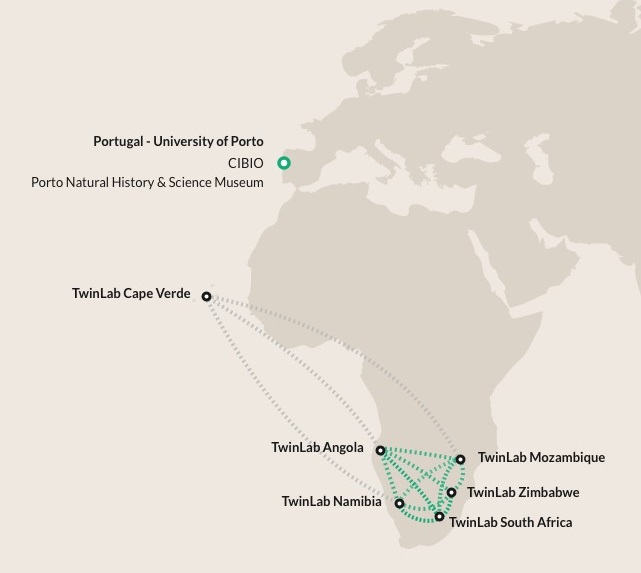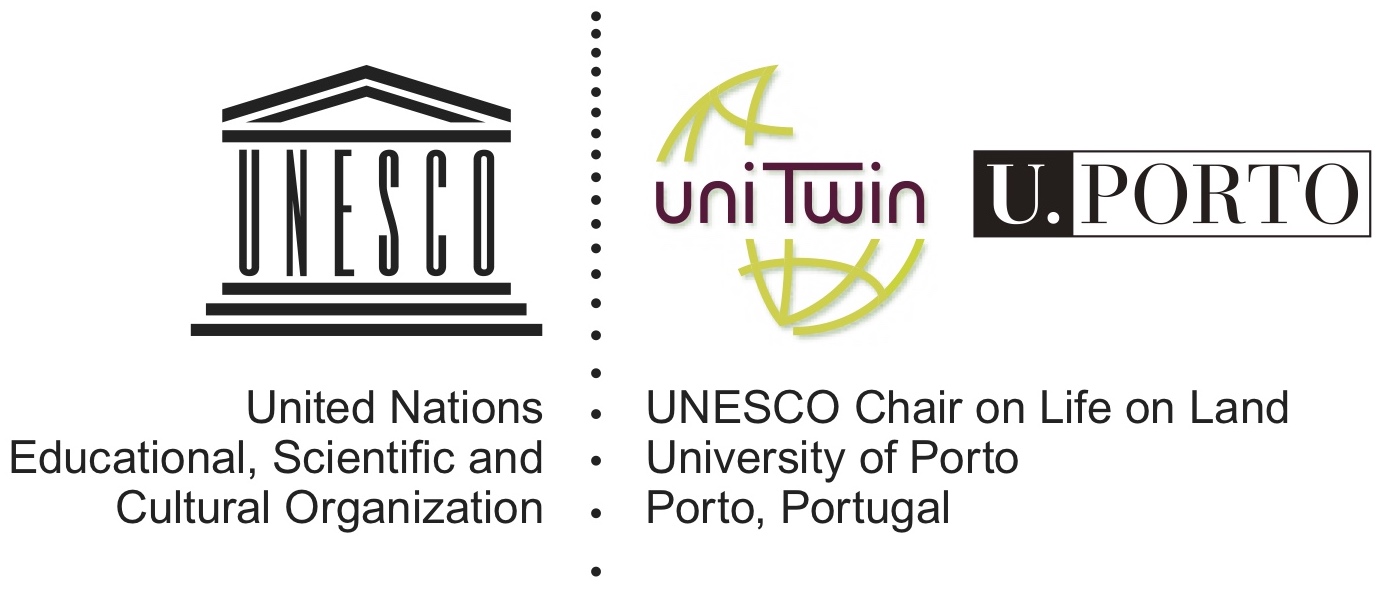Complying with its institutional internationalization strategy, based on the development and expansion of the current scheme of research collaborations through sustainable and innovative initiatives, CIBIO-InBIO has established a network of TwinLabs abroad, with emphasis on African Portuguese-speaking countries, with the aim of jointly develop research, advanced training and capacity building.

In 2012 the first TwinLab was officially established in Angola, at the Herbarium and Zoological Museum of the Superior Institute of Education Sciences of Huíla (Lubango), followed in 2015 by the TwinLabs of Mozambique, at the Chókwè Health Research and Training Center, and of South Africa, at the University of Johannesburg. In 2016 the agreements related to the Twinlabs of Cape Verde, at the University of Cape Verde, and of Namibia, at the University of Namibia were signed; in 2017, the Twinlab of Zimbabwe (University of Zimbabwe) was officialised; and, from 2019, the University Mandume Ya Ndemufayo became part of the TwinLab of Angola. Still in 2019 integration agreements were established between CIBIO-InBIO and the Midland States University and the Bulawayo Museum regarding the TwinLab of Zimbabwe; also with Namibia University of Science and Technology, with respect to the TwinLab of Namibia; and with Universidade Onze de Novembro (Cabinda), concerning the TwinLab of Angola. That same year, the creation of a TwinLab in Botswana was decided, to be integrated by the Okavango Research Institute and the San Research Centre, both from the University of Botswana. In 2021 a new base of the TwinLab of Angola was created, in the region of Cuando-Cubango, grounded on a direct agreement with the Provincial Government. Preparatory work still under way for the implementation, among others, of TwinLabs in S. Tomé e Príncipe and Guinea-Bissau.


In November 2017, as the international recognition of the significance of this collaborative effort, UNESCO awarded the University of Porto with the Chair Life on Land, with the purpose of promoting and coordinating the interaction between the TwinLabs of the Southern African Development Community (SADC) region.

UNESCO Chairs are programmes assigned by this international organization of the United Nations for Education, Science and Culture, and through competitive calls, to projects of scientific excellence, innovative in areas considered priority, and with a duration of four years (renewable). In view of the serious and recognized global problem of the biodiversity crisis, and due to the unfeasibility of an isolated approach to the problem, the UNESCO Chair Life on Land has sought to implement, in recent years, an integrated system of research, training, documentation and information on biodiversity, reinforcing the links and collaborations between CIBIO-InBIO and internationally recognized high-level institutions, from Africa and other regions of the world; on the other hand, has actively sought to increase and exploit the research and training activities of the CIBIO-InBIO Network of TwinLabs in the southern area of the African continent.
Its priority range of intervention is sustainable development, climate change and natural heritage management. In a first clustering exercise, the region of Southern Africa was the most intervened, in which efforts have been made to promote interdependence between the TwinLabs of Angola and Mozambique, and the TwinLabs of Namibia, South Africa and Zimbabwe. The focal point was the Twinlab of Angola, namely the Lubango base, more specifically from a set of actions promoting the establishment of ambitious programmes, as the International Masters, in Association with University Mandume Ya Ndemufayo, in "Biodiversity, Genetics and Conservation”, or the future Museum of Natural History and Science of Lubango – to be created in a partnership between CIBIO-InBIO, the Provincial Government of Huíla, and the Railways of Moçâmedes (CFM).
For the other TwinLabs, namely those of Namibia, Zimbabwe and Botswana, similar research, educational and (infrastructural) capacity building actions are in planning and implementation phase, namely the replication of the Masters Course in "Biodiversity, Genetics and Conservation” (Namibia), and the settlement of Molecular Biology (Namibia) or Ecology (Zimbabwe and Botswana) state-of-the-art laboratories. Besides that, a regular flow of PhD grants was guaranteed, for the next years, for students from the TwinLabs intending to attend the Doctoral Programme «BIODIV» at CIBIO-InBIO.